
 Flash News
Flash News
The mystery of Renis Dobra's murder, the two main leads of the investigation are revealed
Rama's ultimatum: On Monday, all heads of administrative units must be dismissed
Fires in the country, 4 fires still active, what is the situation?
Rama targets Shkodra prosecutor again: Gjeli wrote philosophical essay with innocence of illegal construction
Wanted for theft, 26-year-old arrested in Durrës
One journalist is killed on average every day in the Israel-Hamas war

A journalist or media worker is killed on average every day in the Israel-Hamas war, the head of the International Federation of Journalists (IFJ) said on Monday, making the conflict unparalleled in terms of media consequences.
About 60 members of the media have been killed since the fighting began on October 7, approaching the number of journalists killed during the entire two-decade Vietnam War half a century ago.
Other brutal wars in the Middle East have not even come close to the intensity of the current one.
"In a traditional war such as those in Syria, in Iraq, in the former Yugoslavia, we have not seen this kind of massacre," said the secretary general of the International Federation of Journalists, Anthony Bellanger in an interview with the Associated Press agency.
And since the week-long ceasefire in Gaza expired on Friday, the losses have continued, he said:
"Unfortunately, we got the bad news this weekend that after the ceasefire ended, three or four more (journalists) have been killed."
Mr Bellanger said around 60 journalists had lost their lives, including at least 51 Palestinians, as well as Israelis and Lebanese. Most have been killed during Israel's bombing of the Gaza Strip.
He said that Israeli journalists were also killed during the Hamas attack in southern Israel that was the cause of the start of the war. He said these figures are based on all the sources the federation uses for its annual report. In addition to human casualties, the facilities of many media organizations were also destroyed in Gaza, he said.
He estimates that before the conflict there were about 1,000 journalists and media workers in Gaza and says that now no one can leave Gaza.
Yet even amid the destruction, local journalists continue to do their jobs, says Nasser Abu Baker, president of the Palestinian Journalists' Union.
"They have lost their families and continue to work," he said. "They are homeless and continue to work. ... No food, no security for them, no family. Even if their families are still alive, they are not with the families because the families live or sleep in hospitals."
Mr Bellanger said the Israeli authorities had not responded.
"I called the Israeli government, but they didn't answer me. And when I went to Palestine a few days ago, I asked the press office of the (Israeli) government to make a meeting. But nobody answers," he said.
Israel has said that makes every effort to avoid killing civilians and accuses Hamas of endangering them by operating in residential areas.
"We want to make sure that journalists are protected. Their work on the ground is critical," White House press secretary Karine Jean-Pierre told The Associated Press.
IFJ and Reporters Without Borders have called on International Criminal Court (ICC) prosecutors to investigate the deaths of journalists and media workers, and ICC chief prosecutor Karim Khan has visited the area.
The ICC's Office of the Prosecutor has been investigating the actions of the Israeli and Palestinian authorities since 2014.
The investigation may also consider allegations of crimes committed during the current war. Mr. Khan has called on Israel to respect international law, but has not accused it of war crimes.
He called the October 7 attack by Hamas a serious violation of international humanitarian law. Israel argues that the ICC has no jurisdiction over the conflict because the Palestinian territories are not an independent sovereign state.
Israel is not a party to the treaty that upholds the ICC and is not one of its 123 member states.
Mr. Bellanger doesn't think the situation on the ground will change anytime soon, but says that as head of the global journalism network, "I can't afford to be pessimistic."/ voa
Latest news



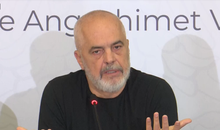
Rama's ultimatum: On Monday, all heads of administrative units must be dismissed
2025-07-11 11:05:59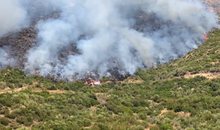
Fires in the country, 4 fires still active, what is the situation?
2025-07-11 10:56:23
Government irony: Rama strips Dredha of power, then demands law and order
2025-07-11 10:49:10
German media: Vlora Airport 'kills' one of Europe's largest wetlands!
2025-07-11 10:37:46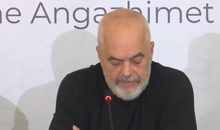
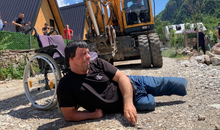
Amid the Alps in Theth, the law punishes even those who try to respect it
2025-07-11 10:14:16
Wanted for theft, 26-year-old arrested in Durrës
2025-07-11 10:03:29
After the dismissals, Rama gathers the mayors in Durrës
2025-07-11 09:42:29
Released on bail, Salianji appears before the Probation Service
2025-07-11 09:34:28

Haxhi Qamil Rama and the directors of the Municipalities!
2025-07-11 09:21:35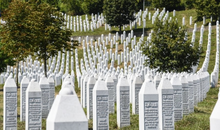
30 years since the Srebrenica massacre in Bosnia and Herzegovina
2025-07-11 09:10:52

From rhetoric to brandy, POLITICO: 9 things Nigel Farage can do in Albania
2025-07-11 08:53:35
Trump announces 35% tariffs on Canadian goods
2025-07-11 08:39:29
Foreign exchange, how much foreign currencies are sold and bought today
2025-07-11 08:24:25

Horoscope, what do the stars have in store for you today?
2025-07-11 07:59:39
Sun and high temperatures, weather forecast
2025-07-11 07:41:09
Morning Post/ In 2 lines: What mattered yesterday in Albania
2025-07-11 07:20:14
Zhupa: In Theth, some Austrian strategic investors want the empty area
2025-07-10 22:57:08
Malltezi: SPAK admits, we are in a process that began with Balla's false report
2025-07-10 22:34:16

Si të çliroheni nga bllokimet emocionale me anë të ushtrimeve
2025-07-10 21:57:24

Lala: Veliaj wanted to return as mayor
2025-07-10 21:40:46

VIDEO/ Brawl in Bolivian parliament, deputies physically clash
2025-07-10 21:20:30


Albania experienced one of the longest heat waves of the last decade
2025-07-10 21:01:09

The Government approves new procedures for declaring residence in e-Albania
2025-07-10 20:39:32

Koka: Northerners will not forget Edi Rama's racist operation in Theth
2025-07-10 20:18:24
The 3 zodiac signs that will be most affected by the 'Full Moon' of July 10
2025-07-10 20:04:49
New director of the National Center of Cinematography appointed
2025-07-10 19:51:12
Korça/ 40-year-old man jumps from fifth floor balcony, in critical condition
2025-07-10 19:40:19
'Tired Woman'/ The Syndrome That Affects Thousands of Women Every Day
2025-07-10 19:34:02
Jane Birkin's original Hermès bag sells for $10 million
2025-07-10 19:26:22

Britain-Ukraine agreement signed for 5,000 Thales missiles
2025-07-10 19:00:25
Fire in Zvërnec, flames endanger two hotels
2025-07-10 18:57:19
Croatia restores compulsory military service
2025-07-10 18:39:01
Spahia: The great truth of the strong accusation of the residents of Theth
2025-07-10 18:35:07


The Supreme Court left him in prison, Meta addresses the 'Constitution'
2025-07-10 17:57:21
New punishment with 'new' regulations
2025-07-10 17:54:46
EU translator fired over fears for Zelenskyy's safety
2025-07-10 17:45:37
'You are a policeman, but not God, take my soul', protest for Agon Zejnullahu
2025-07-10 17:41:21


Video/ Rama repeats the scenario, kneels before Meloni again
2025-07-10 16:56:31
He set fire to a plot of olive trees, 50-year-old man arrested in Shijak
2025-07-10 16:46:19

Rubio: US and Russia have exchanged new ideas for Ukraine peace talks
2025-07-10 16:36:20
Death of 27-year-old, Lipjan Police Commander Resigns
2025-07-10 16:21:28
Video/ An apartment burns in Tirana near the New Bazaar
2025-07-10 16:09:36


Jensila lights up the internet with her birthday greetings to Ledri
2025-07-10 15:42:08
They're full of pesticides! List of 12 products we need to be careful of
2025-07-10 15:31:04

Worker falls from scaffolding in Shëngjin, urgently sent to Trauma
2025-07-10 15:11:03
Malltezi: Within one day they seized my accounts, properties and shares
2025-07-10 15:01:23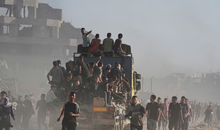
EU: Israel has agreed to more aid to Gaza
2025-07-10 14:55:19


Murder of Reni Dobra, 23-year-old's vehicle pulled from the water
2025-07-10 14:29:23
Trump's tariffs on Brazil raise coffee prices
2025-07-10 14:16:07
Ursula von der Leyen survives no-confidence vote
2025-07-10 14:04:27

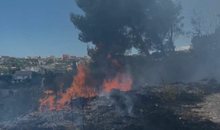
Fire in Lezha, flames near electrical substation
2025-07-10 13:32:24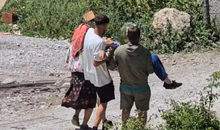
Residents clash with police in Theth, a woman faints
2025-07-10 13:24:38
"Rama and Xanun"
2025-07-10 13:15:46

Zodiac signs most likely to get divorced in July 2025
2025-07-10 12:45:51
A scapegoat for an illegitimate Republic
2025-07-10 12:35:02
"He has devastated his own nation"/ Berisha: Rama imprisons his opponents!
2025-07-10 12:26:54

Albanian man injured with knife in Italy
2025-07-10 12:08:55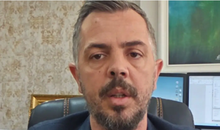

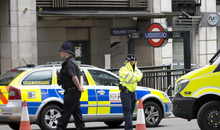




23-year-old in Mat drowned with rope, 4 suspects are being held
2025-07-10 10:58:53
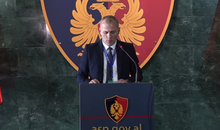
After the dismissals, the new director of the Shkodra Police is appointed
2025-07-10 10:30:10
BIRN: Rama's action for public spaces, a repeated spectacle
2025-07-10 10:29:11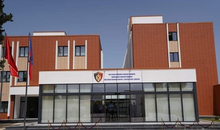
Action in Theth, Shkodra Police leaders dismissed
2025-07-10 10:16:28
Fatal accident on the Tirana-Durres highway
2025-07-10 10:01:58
The incinerator does not exist, but the government continues to increase funds
2025-07-10 09:51:45
